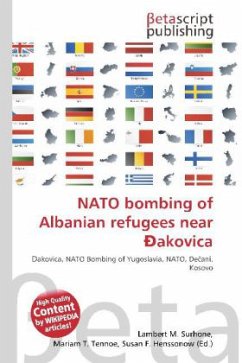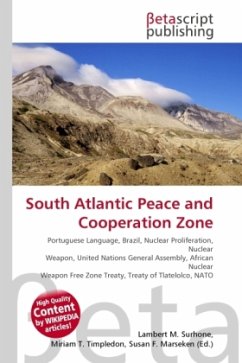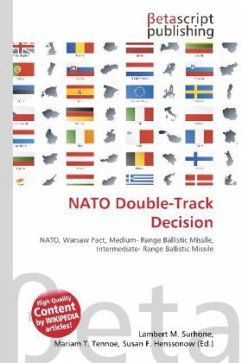
NATO bombing of Albanian refugees near akovica
Versandkostenfrei!
Versandfertig in 6-10 Tagen
30,99 €
inkl. MwSt.

PAYBACK Punkte
15 °P sammeln!
Please note that the content of this book primarily consists of articles available from Wikipedia or other free sources online. The Bombing of Albanian refugees near akovica occurred on April 14, 1999 during the NATO bombing of Yugoslavia, when NATO planes repeatedly bombed refugee movements over a twelve-mile stretch of road between akovica and De ani in western Kosovo, killing 73 civilians. Human Rights Watch found no basis to support the claims by NATO that the convoys themselves were composed of military vehicles. The attack began at 1:30 p.m. and persisted for about two hours, causing civ...
Please note that the content of this book primarily consists of articles available from Wikipedia or other free sources online. The Bombing of Albanian refugees near akovica occurred on April 14, 1999 during the NATO bombing of Yugoslavia, when NATO planes repeatedly bombed refugee movements over a twelve-mile stretch of road between akovica and De ani in western Kosovo, killing 73 civilians. Human Rights Watch found no basis to support the claims by NATO that the convoys themselves were composed of military vehicles. The attack began at 1:30 p.m. and persisted for about two hours, causing civilian deaths in numerous locations on the convoy route near the villages of Bistrazin, Gradis, Madanaj, and Meja. NATO and U.S. spokespersons initially claimed the target was an exclusively military convoy and that Serb forces may have been responsible for the attacks on civilians. Pentagon spokesman Kenneth Bacon said that NATO commander Wesley Clark had received reports that "after the convoy was hit, military people got out and attacked civilians.












